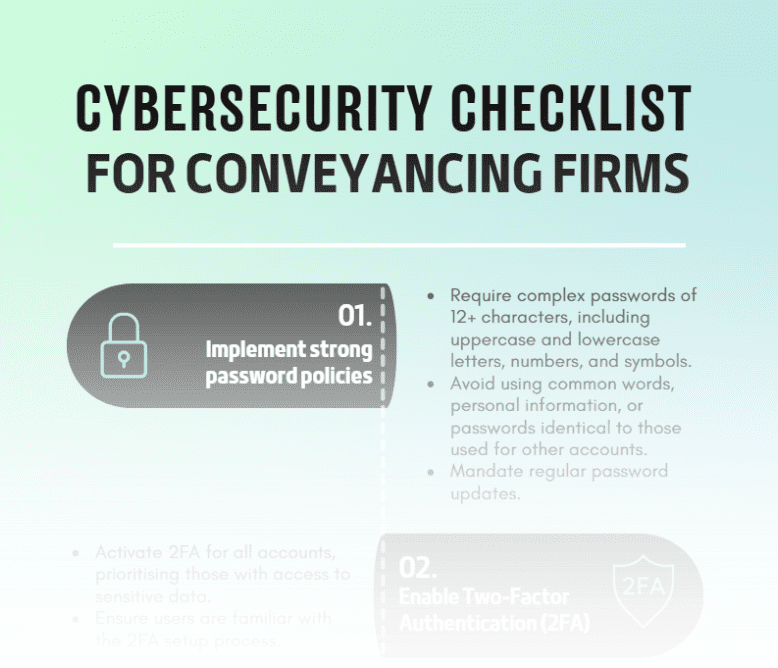The conveyancing industry continues to roll into the latter half of 2023, with properties selling before auction, it’s become a high volume sport for practitioners. But with every property transaction, comes an increasing number of stressed clients.
Being stressed while buying or selling a property comes with the territory. Especially when your client is handling multiple agencies, practitioners, tradespeople as well as the other side of the matter at the same time.
One essential skill you should have as a conveyancer, is the ability to manage stress, both your own, and your clients. Here, we explore six easy strategies you can implement to ensure your involvement is the least stressful in your clients’ journey.
1. Don’t take things personally
When a customer voices concern in a not-so-polite way, the natural reaction is to react in a not-so-polite way back. However, this is not only bad for business, but it elevates stress for everyone involved.
When interacting with your clients at each stage of the conveyance, you need to understand that when a customer reacts angrily, they’re not angry at you.
They’re likely upset with a difference circumstance entirely.
2. Identify signs of stressed clients
Having the skills and observation to notice signs of stress will also help during your encounters with your clientele.
Overcoming the situations of irate stress will give you a chance to build a stronger relationship and an overall better service for your client, but you need to identify types of stress:
Anger: Is your customer starting to get short with you? Are they interrupting you? Is his voice getting louder? Is her face getting red? Try not to get defensive, just notice that your customer is likely angry because they are beginning to be stressed and utilize one of the interventions below.
Anxiety: Do you notice that your customer is starting to fret about things? Are they asking a lot of “what if” questions? They might even tell you directly that they’re nervous. Anxiety can be a good indicator of stress.
Calling (or emailing) you constantly: Your customer might be calling you more than usual, asking when the contract will be done, when if certain extras have been considered or when settlement is.
Crying: This is a response that might make you very uncomfortable. Try not to worry about it too much, though. Some people really need to cry to get their feelings out, while others are just people who cry easily. It may not have anything to do with you, but it still is a sign of stress that you may want to attend to.
3. Be an engaged listener
First and foremost, remember that your customer’s problem may seem like a small matter to you, but it’s huge to them, especially during a potential million-dollar transaction. Try these ideas to indicate that you are actively hearing what they are saying.
Look them in the eyes: You don’t need to have a stare down, but it will help you to appear attentive when you look your customer in the eyes as she is talking and when you’re talking.
Don’t do something else while they’re talking: Put everything else down and listen. Continue to look them in the eyes and give them your full attention.
Ask questions for your own clarification: Not only will this help you understand their problem better, but it gives your customer the message that you are truly interested in helping them. And it can help them build a framework that puts their problem into a perspective that both of you can work with.
Show empathy: The challenge in dealing with a stressed or angry customer is to see things from the customer’s perspective. Once you see things from the customer’s point of view, helping the customer becomes easier.
4. Be organised
In a situation where a client oversees/forgets some details and/or starts to panic, your thoroughness can bring some peace. When a client realises that you are methodical and that you keep track of all crucial details, situation will naturally tone down and give them a piece of mind.
That said, make sure you keep your clients/projects details in order, have notes for every call you had, every issue that has been resolved, and every suggestion your client might have had.
Make sure you stay organised, because the more you’re prepared during your conveyance, the better service you will provide.
5. Always be honest
Being honest is not always easy but is an absolute must. To learn from these mistakes, you need to analyse every aspect and know what you did wrong.
Once you find yourself in a situation where you oversaw/missed something that is crucial or even minor, the main thing is not to panic. It is the absolute must not to transfer this emotion on to your client.
These situations will always require a swift response: the sooner you respond the better chance you have of reducing the damage. So again; be honest, react appropriately and promptly. Client will respect this and again be sure that they are with the right company – transparency is everything.
6. Stay up to date with your “game”
Ensure you’re using the best and most efficient workflow eConveyancing, practice management software and search tech in the market.
This will be a crucial step to getting your workflow done at a low cost to your customer and at a fast and accurate rate.
Managing stressed clients comes in many different forms, from honesty, organisation, listening, identifying, and separating yourself from an anger-fuelled situation.
However, one method to offer the most efficient service to your clients is to the triSearch all-in-one conveyancing solution, triConvey.
Using triConvey you can conduct your entire conveyance from the one practice management software with integrations with Office 365, PEXA, next gen integration search, and accounting software like MYOB and Xero.
Book a free demonstration to learn how triConvey can help you reduce stress in your conveyance, today.






